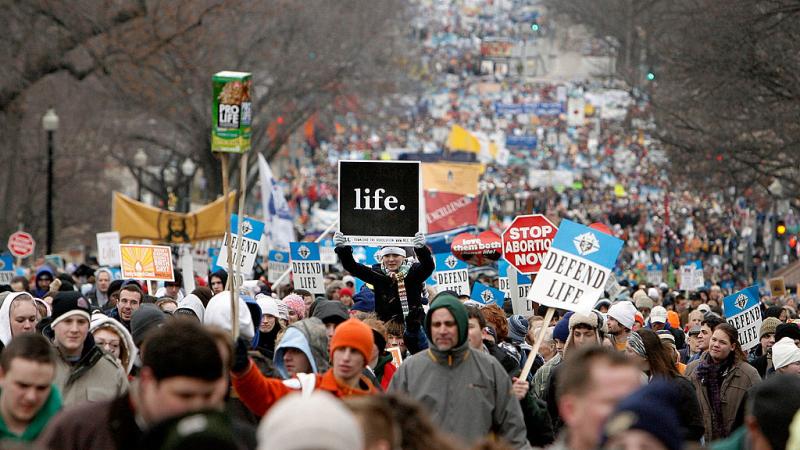How Florida's nursing home strategy spared it widespread deaths seen in NY, NJ
As New York and Pennsylvania put coronavirus patients in nursing homes, Florida kept them in the hospitals
As controversy grows over some states having forced nursing homes to accept COVID-19-positive patients — a policy that may have contributed to astronomical death rates in numerous long-term care facilities — officials in Florida say they did everything they could to keep infectious patients out of vulnerable environments and in isolated hospital settings.
The state governments of New York and Pennsylvania have come under scrutiny in recent weeks as the death tolls at their respective care facilities have grown significantly. New York has seen thousands of deaths in nursing homes over the past several months; as many as a quarter of all deaths in the state are estimated to have occurred in those facilities. In Pennsylvania, meanwhile, the death toll in care facilities is running around 70% of all fatalities in the state.
Both Pennsylvania and New York declared early in the outbreak that nursing homes could not turn away residents simply because they had had a positive coronavirus test. In effect, the states forced nursing homes to accept likely infectious patients, bringing them into the closed environments of nursing homes where the overwhelming majority of residents were among the most vulnerable to infection and death.
State health officials have defended those policies. Earlier this month New York Gov. Andrew Cuomo spokesman Rich Azzopardi told media that the state's directive was "based on CDC guidelines and is virtually identical to several other states." He said the policy dictates that "if a nursing home does not have the facilities, the staff nor the protective equipment to care for a resident, they must transfer them to a place that can."
Pennsylvania Health Secretary Rachel Levine, meanwhile, also argued on Thursday during a press conference that the state's directive was in line with CDC guidance, and that the "vast majority of those patients contracted COVID-19 at the [long-term living] facility."
"Because they got sicker, they were transferred to the hospital. Then, when they were better, they were transferred back to their home, which is the facility," Levine said, adding that officials instructed facilities to keep those patients isolated.
The health secretary cited "significant concern about overwhelming the hospitals and making sure that patients couldn't just stay in the hospital because we needed those hospital beds."
'I'm not going to send anyone back'
Yet even as those policies may have been wreaking havoc on care facilities in those states, Florida — for months now accused by public officials and pundits of implementing reckless, too-lax pandemic mitigation policies — was taking numerous steps to keep infectious patients out of those homes.
In interviews with National Review, state officials, including Republican Gov. Ron DeSantis, said they worked to ensure that elderly COVID-19 patients stayed in isolated hospital environments for treatment and that nursing homes themselves were tightly sealed and highly protected by a matrix of strict regulations.
Florida at the height of the pandemic was "devoting enormous attention to nursing homes and establishing highly restrictive policies to protect them," National Review reports. Mary Mayhew, the secretary of Florida’s Agency for Healthcare Administration, said healthcare workers early in the pandemic were insisting on the need to "get [COVID-19-positive residents] returned back to the nursing home."
"We drew a hard line early on," she said. "I said repeatedly to the hospital, to the CEOs, to the discharge planners, to the chief medical officers, ‘I understand that for 20 years it’s been ingrained, especially through Medicare reimbursement policy, to get individuals in and out. That is not our focus today. I’m not going to send anyone back to a nursing home who has the slightest risk of being positive.’”
The state also imposed strict infection-control standards at nursing homes, and dictated that any facility unable to adhere to them would have to "transfer that individual to a hospital."
DeSantis, meanwhile, said Florida imposed an exacting mitigation policy to keep all other infectious individuals out of the homes. The state "required all staff and any worker that entered to be screened for COVID illness, temperature checks. Anybody that’s symptomatic would just simply not be allowed to go in," he told the magazine.
"We recognized that a lot of these facilities were just not prepared to deal with something like this," he said. "So we ended up sending a total of 10 million masks just to our long-term care facilities, a million gloves, half a million face shields."
The actual share of statewide deaths out of Florida's nursing homes — around 850 — is about 39%, more than New York though significantly less than Pennsylvania.
Around 5,700 nursing home patients have died in New York State. The state government recently changed its policy forcing homes to accept COVID-19-positive patients.
One Florida official told NR that they found it "shocking that Governor Cuomo [and others] are able to kind of just avoid real questions about their policies."














